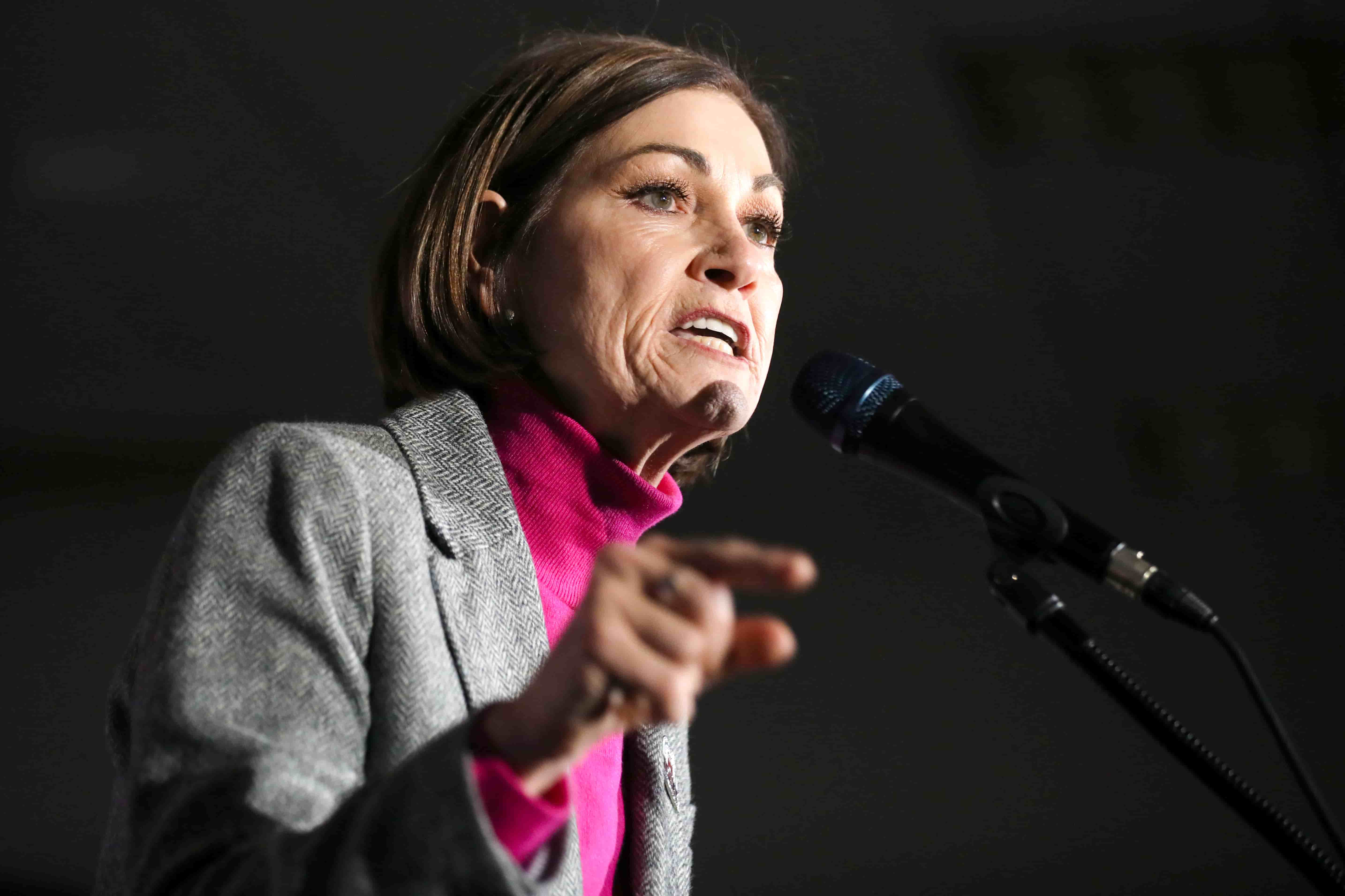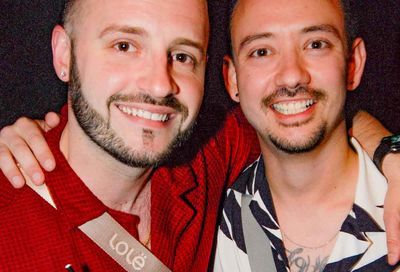Republicans: Website Designer Should Refuse Same-Sex Wedding Clients
More than 50 Congressional Republicans sign onto amicus brief arguing creative professionals should not be forced to violate their religious beliefs.

More than 50 congressional Republicans have filed an amicus brief at the U.S. Supreme Court calling on the nation’s highest court to side with a Colorado website designer who wants to be able to refuse to create custom websites for same-sex couples.
Sen. Ted Cruz (R-Texas) and Sen. Mike Lee (R-Utah) lead the effort to demonstrate support for the designer, Lorie Smith, enlisting 18 other senators and 38 representatives to sign onto the brief, which casts Smith’s refusal to serve same-sex couples as a matter of religious freedom and artistic expression protected by the First Amendment to the U.S. Constitution.
Smith, the owner of the firm 303 Creative LLC, claims that she should be allowed to refuse to create websites for same-sex couples on the basis of her personal religious beliefs opposing homosexuality, and her refusal to communicate a message that implicitly supports same-sex marriage.
Enlisting the help of the anti-LGBTQ legal group Alliance Defending Freedom, Smith sued the state of Colorado in 2016, demanding an exemption from the Colorado Anti-Discrimination Act, which prohibits businesses that open themselves up as places of public accommodation from discriminating against people based on sexual orientation.
Smith claims she will do some work for LGBTQ clients, but creating wedding websites for those individuals would not only violate her religious beliefs but would violate her freedom of artistic expression, as each website she creates is a specially-tailored, one-of-a-kind product reflecting her own creativity.
A federal district judge ruled against Smith in September 2019, finding that her proposal to post a statement outlining her objection to promoting same-sex weddings “proposes an unlawful act” because it would deny services to same-sex couples on the basis of their sexual orientation. She appealed to the 10th U.S. Circuit Court of Appeals, which upheld the lower court’s decision.
Smith’s lawyers then appealed that decision to the Supreme Court, which agreed to take up the question of whether applying a public accommodation law to compel an artist to speak or stay silent violates the artist’s free speech rights. The court is expected to hear oral arguments in the case in the fall.
The case seeks to clarify a point of law left murky by the high court’s 2018 Masterpiece Cakeshop decision, in which the Supreme Court found that a Colorado baker, Jack Phillips, was treated with anti-religious bias by state officials when he refused to bake a cake for a same-sex wedding. However, the court did not address the larger question of whether certain businesses can claim a religious exemption that would allow them to refuse to serve certain customers based on their personal beliefs.
The Supreme Court has previously ducked the issue of by refusing to hear cases dealing with whether wedding-related services, such as cake-baking or flower-arranging, are inherently forms of “artistic expression,” or simply a service or product made available (at least hypothetically, although not in practice) to the general public.
In their amicus brief, the members of Congress argue that the Colorado Anti-Discrimination law can’t withstand legal scrutiny, and infringes upon the rights of Smith and other business owners who object to same-sex marriage.
“These are not aberrations. Time and again, this Court has refused to sanction laws compelling speech or restricting speech on the basis of content or view- point, despite government pleas that such laws were needed to serve important interests,” the brief says. “Regardless of the interest at stake, the First Amendment almost always prevails.”
The Republicans also contend that Colorado’s law simply compels people who oppose homosexuality and same-sex marriage to “mouth views with which they disagree” or remain silent.
“As the Tenth Circuit recognized, same-sex couples have no shortage of alternative options for wedding website designs. The state insists that the availability of these myriad alternatives is just like the ‘guidebook identifying safe lodging for African-Americans at a time when some hotels denied them service’ in Heart of Atlanta Motel, Inc. v. United States,” the brief continues. “There is no similar record here. Indeed, ‘practically all wedding [website] publications now publish LGBTQ+ weddings,’ and ‘it’s more notable if a publication won’t publish LGBTQ+ weddings.’
“The point of applying CADA to Ms. Smith, then, isn’t to provide a public accommodation; it’s to force her to conform her speech to the prevailing view. Yet it is well settled that the state ‘is not free to interfere with speech for no better reason than promoting an approved message or discouraging a disfavored one, however enlightened either purpose may strike the government,'” the Republicans add.
Speaking to Fox News, Cruz has cast a Supreme Court decision in favor of Smith as a victory for “religious freedom” for all Americans.
“Compelled speech against anyone’s religious beliefs is an egregious infringement on the most fundamental liberties our Constitution protects,” he said. “Every American should have the freedom to pursue their professions without being forced to sacrifice their religious beliefs.”
Alliance Defending Freedom General Counsel Kristen Waggoner, Smith’s attorney, told the right-wing CNS News that religious opposition to same-sex marriage is a protected right that traces back to a 1995 Supreme Court decision involving the right of a veterans group in Boston to bar gays, lesbians, and bisexuals from marching in a visible manner in its St. Patrick’s Day Parade.
In that case, the court unanimously decided that the ban on LGB individuals would be allowed to stand, despite a Massachusetts law ostensibly protecting LGBTQ people from discrimination.
She also noted that even in the Obergefell v. Hodges case legalizing same-sex marriage in 2015, the court found that the First Amendment protects individuals who disagree with same-sex marriage.
But LGBTQ advocates have argued that granting Smith an exemption will just provide more opportunities for discrimination against LGBTQ Americans by undermining or poking holes in existing laws that purport to protect them.
“We are witness yet again to the unrelenting anti-LGBTQ crusade being waged by self-described Christian fundamentalist legal groups aiming to chip away at the hard-won gains of LGBTQ people by carving out swaths of territory where discrimination can flourish,” Jennifer Pizer, the acting chief legal officer for Lambda Legal, said in a statement. “The constitutional protections for religious freedom and free speech were never intended as weapons of discrimination for those doing business with the general public.”
Support Metro Weekly’s Journalism
These are challenging times for news organizations. And yet it’s crucial we stay active and provide vital resources and information to both our local readers and the world. So won’t you please take a moment and consider supporting Metro Weekly with a membership? For as little as $5 a month, you can help ensure Metro Weekly magazine and MetroWeekly.com remain free, viable resources as we provide the best, most diverse, culturally-resonant LGBTQ coverage in both the D.C. region and around the world. Memberships come with exclusive perks and discounts, your own personal digital delivery of each week’s magazine (and an archive), access to our Member's Lounge when it launches this fall, and exclusive members-only items like Metro Weekly Membership Mugs and Tote Bags! Check out all our membership levels here and please join us today!
























